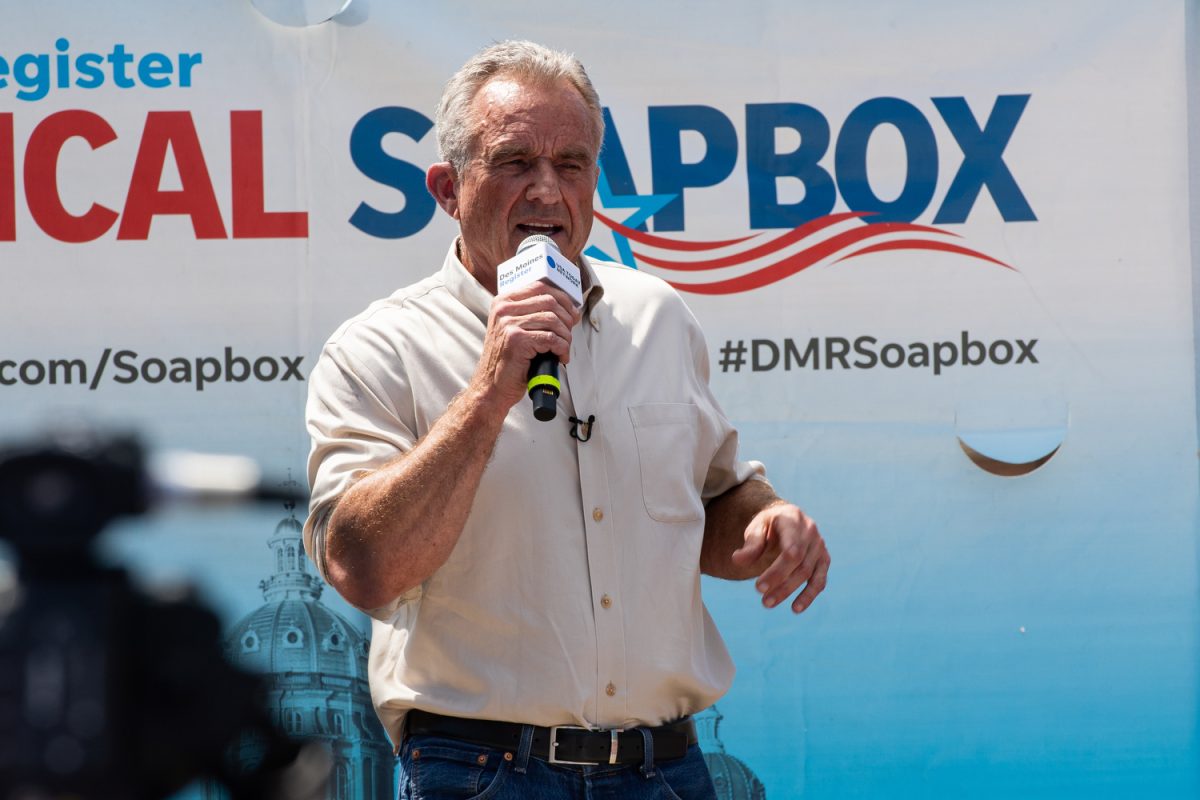“Contrary to common newspaper usage, I am not the Catholic candidate for president, I am the Democratic Party’s candidate for president, who happens also to be a Catholic.”
Despite this clever deflection by then-presidential hopeful John F. Kennedy in 1960, JFK remains one of the most famous Catholic political figures of all time.
Kennedy became the first Catholic president of the United States in 1960, campaigning against anti-Catholic rhetoric and prejudice throughout his run to the White House. During a rally in West Virginia, he famously asked, “Are we going to admit to the world that… a Catholic cannot be President of the United States?…That one-third of the American people is forever barred from the White House?”
Although Kennedy’s term was cut short, his Catholic faith guided many of his decisions and was a prominent theme in his public addresses.
Sixty-four years later, a different Kennedy has emerged on the political scene: Robert Kennedy Jr., the son of late politician and former U.S. Attorney General Robert Kennedy.
RFK Jr., who was a presidential hopeful before dropping out earlier this fall, endorsed Republican candidate Donald Trump for president with a video on Oct. 24. His endorsement goes against his family’s historic political views and comes with a new digital ad praising Trump as the right candidate for America.
The video attempts to take a religious approach to the election, with RFK Jr. urging Catholics — regardless of past political affiliations — to vote for Trump.
“Catholics may disagree on many issues, but we must find a way to love our children more than we hate each other,” he said.
The video goes on to say that the Democratic Party has become the party of “war, censorship, and corruption” and urges Catholics to place their faith in Republican leadership to cure these basic “sins.”
Although many brushed this endorsement off due to RFK Jr.’s controversial track record and lack of national support, I believe it holds more weight than pundits and politicians care to admit. The Catholic vote is significant, and if Democrats aren’t careful, it could mean the difference between victory and defeat in this upcoming election.
According to 2022 data, there are over 62 million Catholics in the United States, making up about 22 percent of the population. Though a minority, this group has substantial influence on U.S. policy and election results, particularly in battleground states.
Michigan, a key swing state and home to 15 electoral votes, has a Catholic population of about 18 percent. In other battleground states, like Wisconsin and Pennsylvania, the percentage rises to 24 percent and 25 percent, respectively.
In what many are calling one of the closest elections in years, small percentages like these could be the “X-factor” for candidates seeking the role of commander in chief. An endorsement from a Kennedy — one of the most well-known Catholic families in American history — could be pivotal in determining who reaches 270 electoral votes.
RFK Jr.’s endorsement comes on the heels of Pope Francis weighing in on this year’s presidential election. During a flight from Asia to Rome in September, the “King of Vatican City” urged Americans to choose the “lesser of two evils” when voting.
His intentionally ambiguous statement suggested dissatisfaction with both candidates, claiming Vice President Kamala Harris is pro-choice, conflicting with church teachings, while Trump’s strict border policies go against Christian values.
Pope Francis, who was initially seen as progressive early in his papacy, has recently adopted more conservative stances, further muddling his comment, which voters could interpret in various ways.
All of this is compounded by the fact that Trump’s running mate, J.D. Vance, has been outspoken about his conversion to Catholicism, while Harris has been labeled “anti-Catholic” by some religious leaders. With these dynamics at play, Democrats may not have done enough to secure the Catholic vote this Nov. 5, potentially leading to an uphill battle.



